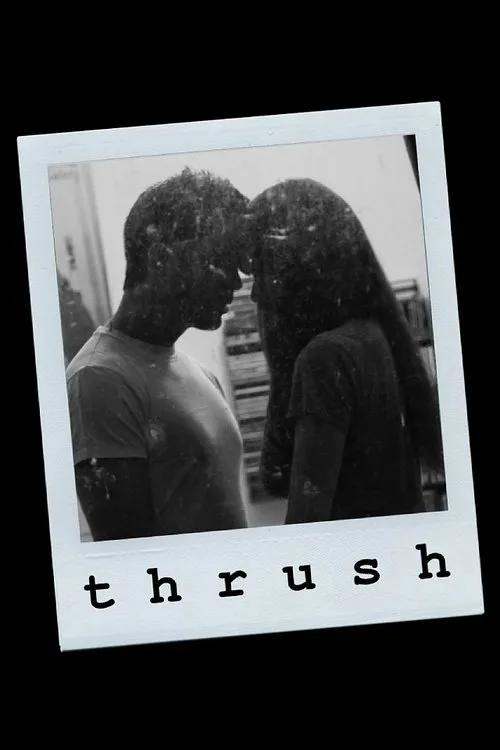Thrush

Trama
'Thrush' is a thought-provoking British drama film released in 2013, directed and written by Jeremy Hewitt. The movie is a poignant exploration of a short-lived yet intense romantic relationship, as portrayed through a captivating narrative device - photographs. Spanning a brief five minutes, the entire film unfolds through a visual tapestry of images, cleverly edited and set to a haunting soundtrack, allowing the audience to grasp the fleeting nature of love and connection. The story follows the development and eventual demise of an intimate relationship between two people, whose names remain unknown to the viewer. The film begins with a tender and joyful moment between the pair, as they laugh and exchange tender glances amidst a vibrant landscape, possibly a park or a scenic spot. Their body language and facial expressions convey an undeniable chemistry and affection for one another. However, this blissful state of being is short-lived, as cracks begin to surface in their bond. As the camera continues to capture their lives, the tone shifts. Disagreements and disputes arise, and their interactions become increasingly strained. The once-bright smiles and giggles are replaced by sullen expressions and distant gazes. The photographs reveal the couple's growing disconnection, their bodies now awkwardly positioned, their words hushed, and their eyes no longer locking in the way they once did. It's a poignant portrayal of how relationships can deteriorate, even when the partners themselves may not yet realize the extent of the damage. One of the most striking aspects of 'Thrush' is its visual representation of emotional states. The photographs seem to speak louder than words, capturing every moment of joy, sorrow, and disillusionment with crystalline clarity. The use of static images as the film's narrative tool allows the viewer to focus on the emotional nuances of each scene, rather than relying on spoken dialogue or cinematic embellishments. The result is a disarmingly honest and unflinching portrayal of love and its demise. Furthermore, the five-minute runtime of the film heightens its emotional impact. This concise narrative structure prevents the audience from getting bogged down in unnecessary details or subplots. The brevity of the film ensures that the focus remains on the couple's relationship, its evolution, and its eventual decline. It's as if time itself has been warped, compressing an entire romance into a condensed, heart-wrenching experience that feels both fleeting and eternal. The cinematography is equally noteworthy, as Jeremy Hewitt expertly crafts a visual vocabulary that is both intimate and objective. The photographs, taken from an assortment of angles and perspectives, provide a sense of immediacy, drawing the viewer into the couple's world. It's as if we're flipping through an album of cherished memories, each snapshot evoking a distinct emotion and mood. The use of color, lighting, and composition adds depth and texture to the film, allowing the viewer to absorb the complex emotional landscape of the relationship. 'Thrush' also raises questions about the nature of memory and perception. As we watch the couple's relationship unfold, we're forced to consider how we ourselves remember and interpret our own experiences. The photographs serve as a form of time capsule, capturing moments in time that may otherwise be lost or forgotten. In this sense, the film becomes a meditation on the fragility of memory and the impermanence of human connection. Ultimately, 'Thrush' is a powerful and affecting film that explores the intricacies of love and relationships through a stunning visual narrative. By stripping away the conventional barriers of spoken language and cinematic embellishments, the film creates a uniquely intimate and honest portrayal of a love that has come and gone. In its concise yet affecting five-minute runtime, 'Thrush' reminds us of the beauty and fragility of human connection, and the importance of cherishing every moment, however fleeting it may be.
Recensioni
Raccomandazioni



